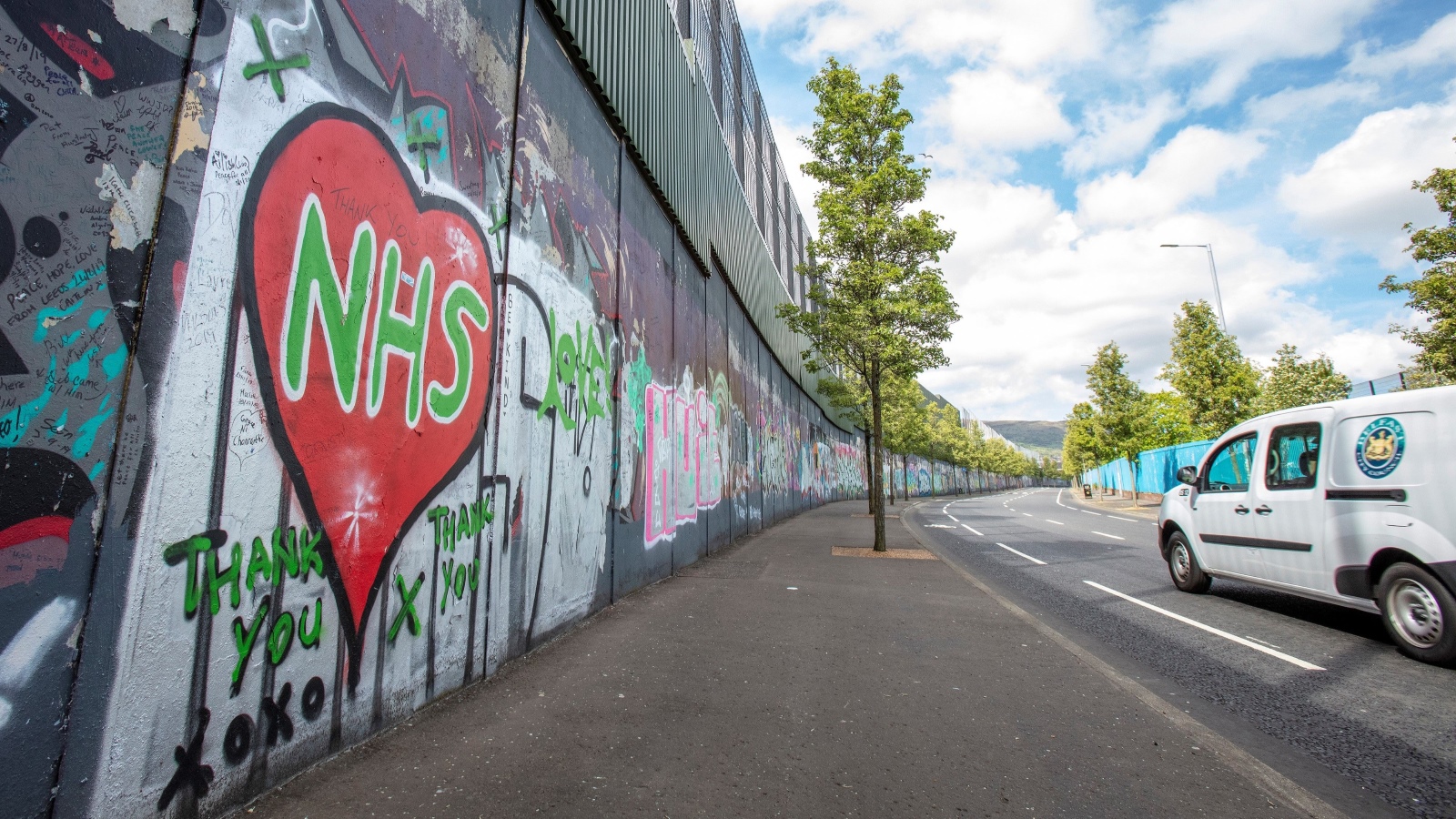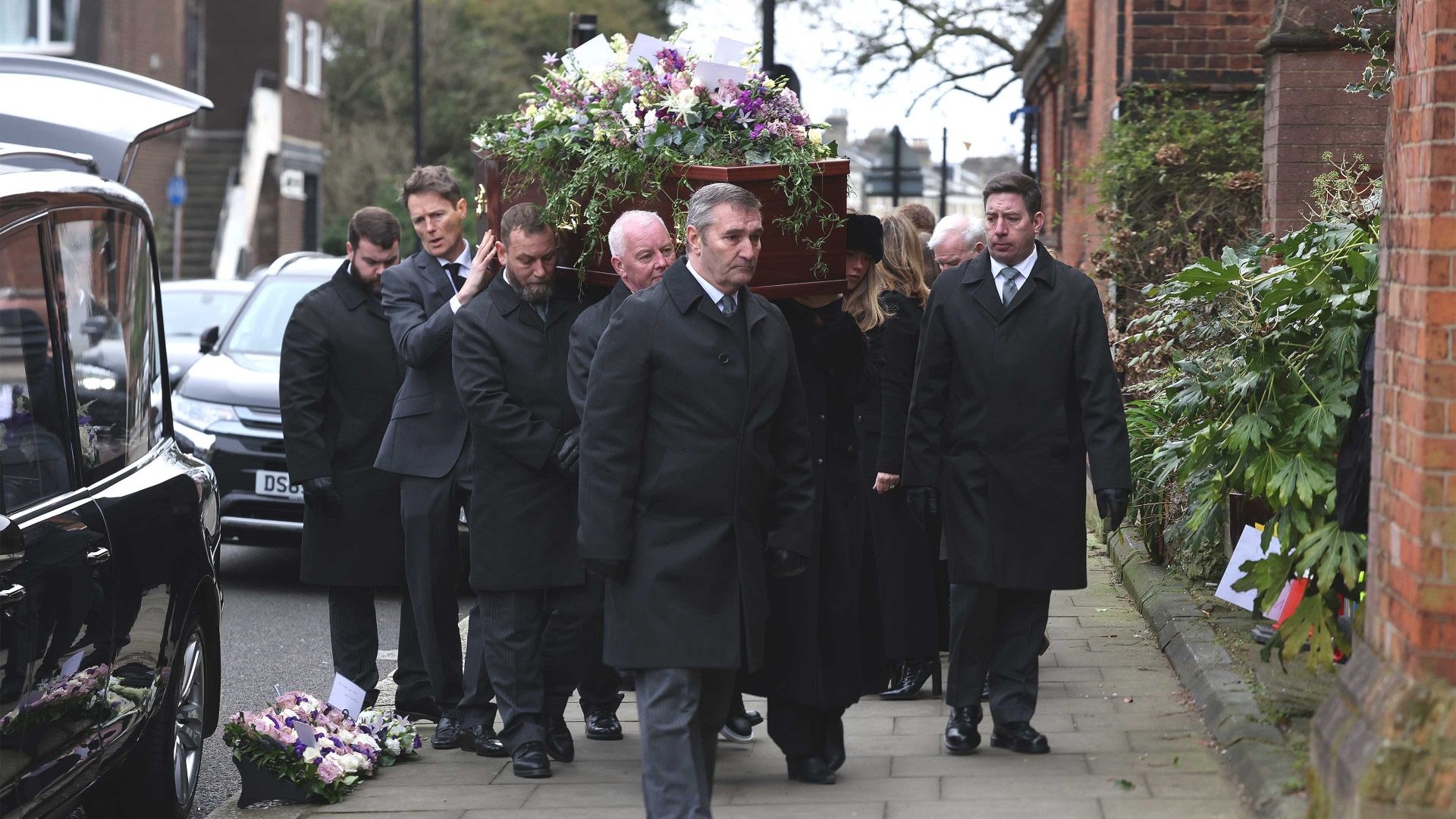With the historic breakthrough of a nationalist first minister in Sinn Féin’s Michelle O’Neill, and earnest speeches by her and the deputy first minister, Emma Little-Pengelly of the Democratic Unionists (DUP), pledging to work together for the benefit of all, Northern Ireland’s power-sharing executive has been cobbled together once again at Stormont.
But many of its citizens, whose quality of life has plummeted in recent years, remain cynical about the prospects of anything improving much soon – or indeed the chances of the political institutions remaining in place long enough for that to happen.
Soon Stormont’s 90 MLAs will be back on full annual salaries of £51,500 (€59,618), a year after a 27.5% pay cut as collective punishment for the political stalemate. Meanwhile, teachers who last month joined NI’s largest public sector strike in decades demanded to know why a starting salary in the region was £24,000 (€28,055) compared with £30,000 (€35,069) elsewhere in the UK. Health and social care workers also protested at being the lowest paid nationally.
Virtually every aspect of people’s lives has been affected by long years of political dysfunction – crumbling, overcrowded schools; the worst health waiting lists anywhere in the UK or Ireland; even Lough Neagh, which provides 40% of NI’s drinking water, is facing environmental catastrophe.
Many of those hardest hit by the cost of living crisis suffered a further blow with the end, thanks to Brexit, of the European Social Fund (ESF), which delivered £40m annually to hundreds of community organisations to tackle economic inactivity and increase skills. It was replaced by the UK Government’s Shared Prosperity Fund (UKSPF), which provided £57m across two years – a significant shortfall.
Louise Coyle, director of the Northern Ireland Rural Women’s Network (NIRWN), said many people had lost their jobs. Details of the UKSPF funding weren’t revealed until the last minute, adding to the chaos. “Jobs and services were taken away overnight in a place where people needed more investment, not less,” she said.
“The ESF targeted poverty and social exclusion. Money arrived in four-year blocks and that cushioned us against an executive that has been down as often as it was up. The cash continued to flow.”
The additional loss of cash from the EU’s £623m Rural Development Programme for NI, which supported farming and agri-business as well as local communities, proved a further blow, “with no clarity at all yet from the UK government on how it will be replaced – no process, no money, no targets”.
All of this has played out against the backdrop of a punitive austerity budget imposed by London because Stormont was on hold, and which tasked civil servants with introducing swingeing cost-cutting measures.
Last month more than 150,000 workers – almost a fifth of the entire workforce – shut down schools, public transport and non-emergency healthcare in a strike demanding pay rises that had been agreed several years ago.
The Police Service of Northern Ireland (PSNI) does not strike, but it is not exempt from the crisis – its new chief constable, Jon Boutcher, last week warned that he was prepared to go to court to secure £20m for a 7% pay rise for his officers.
Since the Good Friday Agreement in 1998, which ushered in power-sharing, Stormont has not been sitting for 40% of the time. That includes five of the last seven years – it was brought down from 2017 to 2020 by Sinn Féin before the recent two-year hiatus when the DUP, which scored a disastrous own-goal on Brexit, collapsed it in protest at Northern Ireland Protocol trading arrangements.
Northern Ireland is funded by an annual £15bn grant from Westminster, but decades of stop-start government have resulted in short-term financial planning and chronic overspending.
The political parties avoid unpopular fiscal decisions – such as scrapping free prescriptions or introducing water rates – and rely on more bailouts from London for a historically underfunded region. It’s a false form of local solidarity – blame the Brits. Since 2015, Northern Ireland has wrangled £3.44bn in additional funding via a range of deals.
Indeed, the main unionist party, the DUP, is returning to the Assembly chamber with a £3.3bn bung from the UK government as a reward for agreeing to a renegotiated Windsor Framework on trade arrangements.
This includes up to £584m for public sector pay claims and an extra £34m to tackle hospital waiting lists. A Stormont budget overspend of £559m will be deferred for two years, then written off when the returning executive implements a fiscal sustainability plan.
That’s an extraordinary way for both politics and an economy to function, but outside of the optics there is little indication that a revived executive can be effective.
Struggling to get an appointment with a GP or dentist, and long hospital waiting lists are a UK-wide issue, but it’s much, much worse in Northern Ireland. People wait years for routine surgeries such as joint replacements. Out of 33 countries of comparable wealth and income levels, NI ranks 30th for five-year survival for lung cancer and 29th for pancreatic cancer.
The NI Audit Office found that in a population of under two million, 696,000 patients were waiting on either outpatient, inpatient or diagnostic elective care by March 2023. Around 197,000 patients were waiting more than a year for a first outpatient appointment.
Even the chair of the British Medical Association’s Northern Ireland Council, Dr Tom Black, has been forced to introduce a hybrid private and public funding model to avoid closing his practice in the economically deprived Bogside area of Derry. He blamed government underfunding.
Last November, the civil servant leading Stormont’s health department in the absence of an elected minister warned of a £472m funding shortfall – of which £375m would be needed to match a pay deal in England. Despite the latest billion-pound sweetener, it’s clear the crisis will not be solved without a radical rethink.
This has been known for some time. In 2016, the Bengoa review set out a 10-year plan to make NI’s health service fit for the 21st century. Michelle O’Neill, then health minister, described it as at “breaking point”. Almost a decade on not a single proposal has been implemented, though “reconfiguration” of hospital acute services – ie closures – has continued throughout the period of executive shutdown.
How the newly appointed health minister, Robin Swann – popular from his time in the role during the Covid pandemic – will rationalise such a roll-out remains to be seen. He’s also embroiled in a defamation battle with Van Morrison relating to the handling of Covid-19 restrictions.
In December 2023, the Independent Review of Education in Northern Ireland said the region needed an additional £291m – £155m to meet a funding gap with England and Wales, and £136m for the additional cost of having a considerably higher proportion of pupils with statements of special school needs. The report included far-reaching recommendations to “radically reform” NI’s education landscape.
Boutcher, the PSNI chief, intends to recruit 350 new officers in the coming financial year – 100 of them between April and July. Around 350 officers leave each year – including some following the catastrophic data breach on the watch of Boutcher’s predecessor, Simon Byrne, when confidential details of all the PSNI’s 9,500 staff were released by mistake.
Police later confirmed the information was in the hands of dissident terrorists – this in a year when a senior officer was critically injured in a gun attack while off-duty at youth football. The data breach could cost the PSNI up to £240m in extra security for officers and other action. The latest £3.3bn allocates £15m to the PSNI to deal with the impact of the breach.
The fact that, for a while, Byrne apparently reckoned he could survive this catastrophe says much about public life in Northern Ireland.
Creaking – and leaking – infrastructure is not confined to Stormont. The long queue outside the new finance minister’s door – Sinn Féin’s Caoimhe Archibald has been handed what many regard as a poisoned chalice – will include representatives of NI Water, the government-owned utility operator facing a shortfall of £70m.
Last year, Lough Neagh, the largest freshwater lake in the UK and Ireland, became blanketed in bright green toxic algae. It has since cleared, but experts blame fertiliser pollution from intensive farming, and predict it will return.
Will this new Stormont executive stay afloat long enough to tackle these crises? The tensions, as ever, are just beneath the surface.
The DUP, under attack from hardline unionists such as Jim Allister of Traditional Unionist Voice and loyalist spokesperson Jamie Bryson, are selling the Windsor Framework as having strengthened the union. Sinn Féin is saying that the return of Stormont brings a united Ireland closer.
None of these perspectives is accurate. O’Neill’s estimate that a border poll could be held on the future of Northern Ireland within a decade actually pushes the question that most concerns her harder-line republican rivals even further down the road – a whopping 40 years after the ceasefire. The immediate challenge for her and Sinn Féin is the forthcoming general election in the Republic, where national tensions around immigration and housing have threatened to hijack a poll that many felt was simply a procession into power for the republican movement.
On the other hand, unionism’s tortuous negotiations with a supposedly friendly Tory government over recent years have produced both a more self-confident and robust generation of unionist politicians, able to shoulder off the intransigent fringe, and a version of the union more contemporary and practical than ever.
In a place where the past continues to loom large – the heavy legacy of the dead of the Troubles remains unresolved – what’s needed is less divisive talk and more effort at working together successfully.
Even so, it will come too late for some. Last week one of Belfast’s best-known figures, Pedro Donald, owner of The Sunflower Bar and The American Bar, two successful enterprises, revealed that, aged 58, he was moving to Amsterdam to build a new life. Obstructive bureaucracy, negativity and lack of vision had made doing business in Northern Ireland unbearable, he said. As a parting shot, he said he wanted to live somewhere where he could see a doctor and the buses turn up.
Gail Walker is a former editor of the Belfast Telegraph




